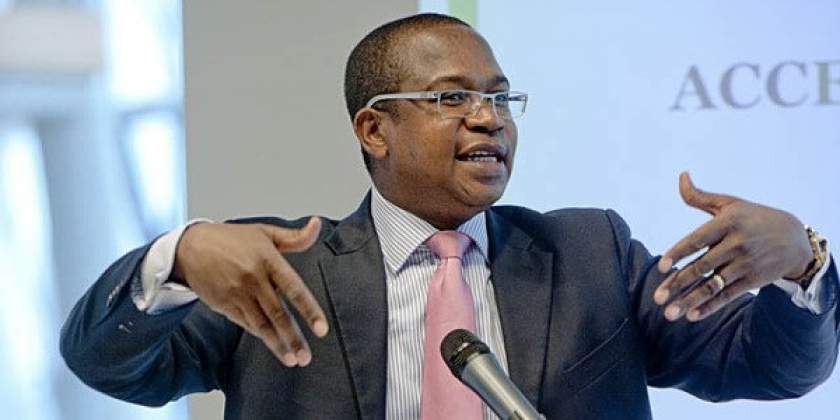
FINANCE and Economic Development minister Mthuli Ncube’s maiden national budget should target the revival of the productive sectors of the economy to set the tone for revival, business has advised.
BY MTHANDAZO NYONI
Ncube, a former African Development Bank vice-president and respected economist, who was appointed by President Emmerson Mnangagwa in September amid high hopes he would spearhead the revival of the comatose economy, will present the 2019 budget on November 22.
The budget will be presented at a time the economy is imploding, pushing the inflation rate to alarming levels.
Zimbabwe National Chamber of Commerce Matabeleland Chapter chairman Golden Muoni said Ncube should allocate more money towards the productive sectors of the economy like industry.
He said the budget should also address challenges affecting the health sector.
“We don’t want people to go outside the country to get treatment,” he said.
Muoni said government should capacitate farmers and put in place measures to make sure that they repay their loans.
- Chamisa under fire over US$120K donation
- Mavhunga puts DeMbare into Chibuku quarterfinals
- Pension funds bet on Cabora Bassa oilfields
- Councils defy govt fire tender directive
Keep Reading
Professional Business Association of Zimbabwe president Lucky Mlilo said they expected a budget that would support developmental and infrastructural needs of the economy.
“The budget deficit has been cause for concern. We expect measures that will curb the increase of the deficit.
“The civil service wage bill of over 91% of the budget is unsustainable,” he said.
“The informal sector remains a significant component of our economy and this means cash continues to play a big role in the lives of most people.
“There is still need for more measures to encourage the use of plastic money and mobile money transactions at affordable transactional charges.
“Curbing of massive externalisation and other related illicit outflows is of importance to a bleeding economy like ours.”
Zimbabwe Congress of Trade Unions secretary-general Japhet Moyo said they had been engaging on the formulation of the budget in the past but their input was not taken seriously.
“The papers we have been sending to the ministry to consider over the past years have not found their way into the final document. As such, we feel the exercise is meant to hoodwink people,” he said.
“For instance, the issue of allocating more resources to the security sector compared to other sectors like health and education (is counter productive).
“People have been complaining over that to no avail. The country is burning and the market is saying no to the surrogate currency and the budget should address that.
“Also you can’t grow the economy through taxation, but production. The budget should also state how we will resuscitate the closed companies.”
Moyo said the budget should address the shortage of drugs in hospitals as well as high unemployment.
Federation of Farmers’ Union chairman Wonder Chabikwa said they expected the budget to address the availability of agricultural inputs so that farmers could go back to the land and do their job.
“We also expect the budget to bring stability of prices as well as improve availability of cash,” he said.
“We are better off than having plastic money. Farmers also expect to be given incentives just like miners.”
Commercial Farmers’ Union president Ben Purcell-Gilpin said Ncube should ensure the budget gives rise to economic stability.
“We expect the budget to bring about economic stability so that we can start to plan again. At the moment it’s difficult to plan.”
Bulawayo Vendors and Traders’ Association co-ordinator Michael Ndiweni said as the informal sector they expected the budget to address market needs and create linkages between rural traders and urban traders.
“Government should support traders in rural areas to rescue them from the jaws of middlemen,” he said.
“The multi-currency system has failed and there is need to adopt the rand because our largest trading partner is South Africa.”
Harare-based economist and financial expert, Persistence Gwanyanya said Ncube should deal with excessive government expenditure, which he said was causing economic instability.
“There is need for the country to adjust within the 75% prescribed by law,” he said.
“So we need to come up with measures to curb (high) government expenditure and the country’s debt,” he said.
Gwanyanya said Ncube should also review the 2% tax regime on electronic money transactions introduced over a month ago.
He said the tax was overburdening the already overstretched formal sector.
Gwanyanya said Ncube was facing a daunting task with regard to currency issues as his budget would be based on real-time gross settlement system bank balances that were very unstable.
Bulawayo Progressive Residents’ Association information manager Zibusiso Dube said residents were expecting the budget to address service delivery.
“For us as Bulawayo Progressive Residents’ Association, what we expect is a commitment to public service by the government,” he said.
Ncube told a pre-budget seminar for legislators in Bulawayo last week that his ministry wanted to reduce the budget deficit to 4% of gross domestic product next year, down from 11,1% forecast this year.
He said this would be achieved through cuts in government expenditure.











